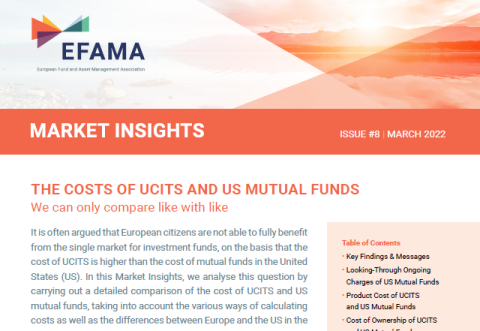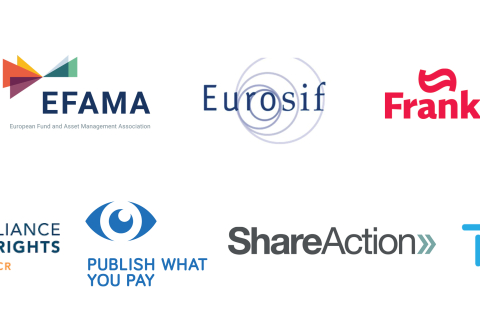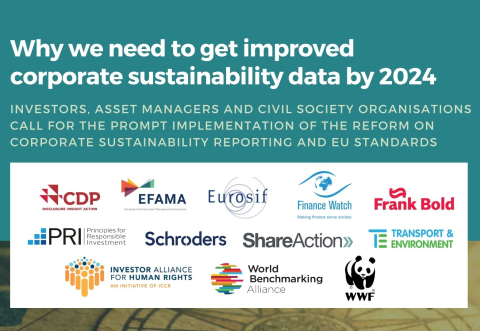EFAMA released today issue number eight of its Market Insights series titled 'The Costs of UCITS and US Mutual Funds - We can only compare like with like'. This
EFAMA’s position on the EC's review of the AIFM and UCITS directives
We welcome the targeted approach of the Commission in its review, recognising the overall success of the frameworks over the past decade.
Joint letter calling to broaden the scope of the CSRD
On behalf of:
CDP, Economy for the Common Good, EFAMA, Eurosif, Frank Bold, Finance Watch, Global Witness, Investor Alliance for Human Rights, Publish What You Pay, ShareAction, Transport and Environment, WWF
Dear Members of the European Parliament,
Further slowdown in the net sales of long-term UCITS
European Fund trends in Q4 2021 – Further slowdown in the net sales of long-term UCITS
2021 - another year of strong net sales and asset growth for the fund industry
The European Fund and Asset Management Association (EFAMA) has today published its latest monthly Investment Fund Industry Fact Sheet, which provides net sales data on UCITS and AIFs for December 2021, at European level and by country of fund domiciliation. A first overview of the net sales data of UCITS and AIFs over the full year 2021 is also included.
EFAMA – the urgency behind a consolidated tape for Europe | A buy-side view on consolidated tape and market structure reforms
The European Fund and Asset Management Association (EFAMA) has today published its position paper on the European Commission’s proposed Markets in Financial Instruments Regulation review which establishes a blueprint for a consolidated tape (CT) across Europe’s capital markets.
FinDatEx publishes EPT V2
The European PRIIPs Template v2.0 (EPT) incorporates the necessary changes based on the revised PRIIPs RTS, published by in the Official Journal of the European Union in December 2021.
The EPT is intended to be used for products sold from January 2023 onwards. It is important that data contained in the EPT is communicated by asset managers to insurers in good time before this date, bearing in mind any national market specificities.
▶️Find more details here: https://lnkd.in/dN_ZNU3C
Vacancy: Head of Communication and Membership Development | Apply now!
EFAMA is looking for a new Head of Communication and Membership Development to strengthen its Brussels-based Secretariat. This exciting strategic position offers the successful candidate a unique role in helping to build the industry’s profile and strengthen its voice with key stakeholders across Europe.
Continue here for full details!
November net sales of UCITS equity funds at their lowest in 2021
The European Fund and Asset Management Association (EFAMA) has today published its latest monthly Investment Fund Industry Fact Sheet, which provides net sales data on UCITS and AIFs for November 2021, at European level and by country of fund domiciliation.
Welcome to FundApps!
We are thrilled to announce that FundApps, a Compliance-as-a-Service company, has joined EFAMA as associate members.
The EFAMA Board approved their membership on 19 January 2022.
Please join us in welcoming them to the EFAMA community!
Are you interested in becoming an EFAMA member yourself? Here are six reasons for joining us.
EFRAG General Assembly approves EFAMA’s membership
Naïm Abou-Jaoudé, EFAMA President, comments:
CSRD - Why we need to get improved corporate sustainability data by 2024
Investors, asset managers and civil society organisations call for the prompt implementation of the reform on corporate sustainability reporting and EU standards



































